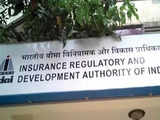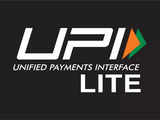Suggest a new Definition
Proposed definitions will be considered for inclusion in the Economictimes.com
What is 'Customer'
Customer
A client is a person or business that buys something from a third party. The main goal of a business is to get a group of customers who buy from them again and again, bringing in money. As the customer is responsible for the inflow of money, in India many traders and businessmen refer to the customer as God.
Who is a customer?
Customer definition: A customer is a person or business that buys goods or services from another business. Customers are crucial because they generate revenue. Without them, businesses would go out of business. Every business fights to get customers by advertising their products heavily, cutting costs to get more customers, or making unique products and experiences that people love. Some examples are Apple, Tesla, Google, and TikTok.
Recognizing Customers
Businesses often follow the saying "the customer is always right" because customers are more likely to come back to businesses that meet or exceed their needs. As a result, many businesses closely watch how their customers talk to each other to get ideas for improving their product lines. There are many ways to group customers. Customers are usually either outside or inside the company.
Internal customers are people or groups part of a company's daily operations. They are usually employees or other functional groups. External clients are different from the company's internal operations, and they are usually the people who want to buy a company's final products and services.
Considering customers
Businesses look at customer profiles regularly to improve their marketing strategies and stock to attract the most customers. Customers are often put into groups based on their age, race, gender, ethnicity, income level, and location, which can help businesses create a profile of the "perfect customer" or "customer persona." With this information, businesses can get closer to their current customers and reach out to customers they haven't yet reached to bring in more customers.
Consumers are so important that schools and universities offer classes on how they act, what they like, and what makes them different. They look at the reasons why people buy and use goods and services, as well as what that means for businesses and economies. Understanding customers helps businesses make better marketing and advertising plans, make products and services that meet customers' needs and wants, and keep customers so they can do business with them again in the future.
Help for customers
A seller-customer relationship that works well needs customer service to ensure customers have great times. A good or bad customer service experience can make or break brand loyalty through online reviews, word-of-mouth, and future business. Customer service has grown in recent years to include real-time conversations through instant messaging, texting, and other channels. There are a lot of companies selling the same or similar goods and services on the market. Customer service, which has become a key part of how most businesses compete, sets them apart from each other. This is one of the most important parts of Sigma Six.
Clients versus Consumers
People often use the words "customer" and "consumer" interchangeably, almost the same thing. But there is a small difference. Consumers are people or businesses that use or use up goods and services. Customers are the economic buyers who buy goods and services. Customers can also be consumers, but they can also be customers on their own.
Important Points to Keep in Mind
How much is a customer worth?
No matter what you sell or what kind of business you run, the customer is the most important part of your business. There will be no sales if there are no customers. So, they are a very important part of figuring out your marketing message and strategy.
Why is it usually the customer who has the upper hand?
The first reason why the customer is always right is that they decide whether a business will be successful or not. For example, customer complaints could hurt your business. By looking at your target market's complaints, feedback, and opinions, you can learn a lot about what your target market wants and needs from your service or product.
How do you talk to your customers?
Dave Oakes, an employee trainer, says that good customer service often comes from listening carefully and speaking clearly and eloquently. The first step in helping a customer is to listen to what they have to say. You must understand the customer's problem and show that you want to help.
Who isn't a customer?
"Clients" is often used to describe customers who have a relationship with a supplier. Also, people who hire a professional are not called customers, but clients. For example, a lawyer has clients. When a customer buys something, the seller immediately moves on to the next one.
What does it mean when someone says, "Everyone has a customer?"
Everyone who works or sells something has customers. Like the saying "do unto others," the idea that everyone is someone else's customer should feel as natural as their skin. Or a "thought of the month" that we use when we need to. We don't just say we care about this.
Who makes up the base of customers?
In sales, business, and economics, a customer is someone who buys something from a seller, vendor, or supplier in exchange for money or something else of value. This person is also called a client, buyer, or purchaser.
Disclaimer: This content is authored by an external agency. The views expressed here are that of the respective authors/ entities and do not represent the views of Economic Times (ET). ET does not guarantee, vouch for or endorse any of its contents nor is responsible for them in any manner whatsoever. Please take all steps necessary to ascertain that any information and content provided is correct, updated and verified. ET hereby disclaims any and all warranties, express or implied, relating to the report and any content therein.
A client is a person or business that buys something from a third party. The main goal of a business is to get a group of customers who buy from them again and again, bringing in money. As the customer is responsible for the inflow of money, in India many traders and businessmen refer to the customer as God.
Who is a customer?
Customer definition: A customer is a person or business that buys goods or services from another business. Customers are crucial because they generate revenue. Without them, businesses would go out of business. Every business fights to get customers by advertising their products heavily, cutting costs to get more customers, or making unique products and experiences that people love. Some examples are Apple, Tesla, Google, and TikTok.
Recognizing Customers
Businesses often follow the saying "the customer is always right" because customers are more likely to come back to businesses that meet or exceed their needs. As a result, many businesses closely watch how their customers talk to each other to get ideas for improving their product lines. There are many ways to group customers. Customers are usually either outside or inside the company.
Internal customers are people or groups part of a company's daily operations. They are usually employees or other functional groups. External clients are different from the company's internal operations, and they are usually the people who want to buy a company's final products and services.
Considering customers
Businesses look at customer profiles regularly to improve their marketing strategies and stock to attract the most customers. Customers are often put into groups based on their age, race, gender, ethnicity, income level, and location, which can help businesses create a profile of the "perfect customer" or "customer persona." With this information, businesses can get closer to their current customers and reach out to customers they haven't yet reached to bring in more customers.
Consumers are so important that schools and universities offer classes on how they act, what they like, and what makes them different. They look at the reasons why people buy and use goods and services, as well as what that means for businesses and economies. Understanding customers helps businesses make better marketing and advertising plans, make products and services that meet customers' needs and wants, and keep customers so they can do business with them again in the future.
Help for customers
A seller-customer relationship that works well needs customer service to ensure customers have great times. A good or bad customer service experience can make or break brand loyalty through online reviews, word-of-mouth, and future business. Customer service has grown in recent years to include real-time conversations through instant messaging, texting, and other channels. There are a lot of companies selling the same or similar goods and services on the market. Customer service, which has become a key part of how most businesses compete, sets them apart from each other. This is one of the most important parts of Sigma Six.
Clients versus Consumers
People often use the words "customer" and "consumer" interchangeably, almost the same thing. But there is a small difference. Consumers are people or businesses that use or use up goods and services. Customers are the economic buyers who buy goods and services. Customers can also be consumers, but they can also be customers on their own.
Important Points to Keep in Mind
- An organization's customers are the individuals and entities who purchase from it.
- Some businesses keep a careful eye on their interactions with clients to discover new ways to improve the quality of their services and products.
- The way a firm serves its customers could provide it with an advantage in the marketplace.
- Market goods and services are consumed or used by consumers.
How much is a customer worth?
No matter what you sell or what kind of business you run, the customer is the most important part of your business. There will be no sales if there are no customers. So, they are a very important part of figuring out your marketing message and strategy.
Why is it usually the customer who has the upper hand?
The first reason why the customer is always right is that they decide whether a business will be successful or not. For example, customer complaints could hurt your business. By looking at your target market's complaints, feedback, and opinions, you can learn a lot about what your target market wants and needs from your service or product.
How do you talk to your customers?
Dave Oakes, an employee trainer, says that good customer service often comes from listening carefully and speaking clearly and eloquently. The first step in helping a customer is to listen to what they have to say. You must understand the customer's problem and show that you want to help.
Who isn't a customer?
"Clients" is often used to describe customers who have a relationship with a supplier. Also, people who hire a professional are not called customers, but clients. For example, a lawyer has clients. When a customer buys something, the seller immediately moves on to the next one.
What does it mean when someone says, "Everyone has a customer?"
Everyone who works or sells something has customers. Like the saying "do unto others," the idea that everyone is someone else's customer should feel as natural as their skin. Or a "thought of the month" that we use when we need to. We don't just say we care about this.
Who makes up the base of customers?
In sales, business, and economics, a customer is someone who buys something from a seller, vendor, or supplier in exchange for money or something else of value. This person is also called a client, buyer, or purchaser.
Disclaimer: This content is authored by an external agency. The views expressed here are that of the respective authors/ entities and do not represent the views of Economic Times (ET). ET does not guarantee, vouch for or endorse any of its contents nor is responsible for them in any manner whatsoever. Please take all steps necessary to ascertain that any information and content provided is correct, updated and verified. ET hereby disclaims any and all warranties, express or implied, relating to the report and any content therein.
Related News
 Ixigo Q4 Results: Net profit soars 55% YoY to Rs 7.34 croreLe Travenues Technology Ltd, the parent company of travel booking platform ixigo, on Thursday reported a 55.2 per cent growth in consolidated profit after tax (PAT) to Rs 7.34 crore in three months to March over the year-ago period. The company, which got listed on exchanges last month, had delivered a consolidated PAT of Rs 4.73 crore in the March quarter of FY23, according to a presentation.
Ixigo Q4 Results: Net profit soars 55% YoY to Rs 7.34 croreLe Travenues Technology Ltd, the parent company of travel booking platform ixigo, on Thursday reported a 55.2 per cent growth in consolidated profit after tax (PAT) to Rs 7.34 crore in three months to March over the year-ago period. The company, which got listed on exchanges last month, had delivered a consolidated PAT of Rs 4.73 crore in the March quarter of FY23, according to a presentation. FMCG is “passe”: Indian economy has a new definition of defensive stocks: 8 stocks from 2 sectors with upside scope of up to 37%On the day of election results were announced and the whole stock market melted, stocks from one sector were able to gain, that was FMCG. Many theories were floated about why they are doing well. Right from them being defensive stocks to that focus would not shift from investment to consumption. But close to a month down the line, all those stocks are once again in the under performance mode. The fact is before deciding on whether the stocks are defensive or not, some questions need to be asked. A stock which was a defensive stock in 1994 when the Indian economy was just opening is still a defensive stock even in 2024 when we are a whole different economy with different needs and consumption patterns.
FMCG is “passe”: Indian economy has a new definition of defensive stocks: 8 stocks from 2 sectors with upside scope of up to 37%On the day of election results were announced and the whole stock market melted, stocks from one sector were able to gain, that was FMCG. Many theories were floated about why they are doing well. Right from them being defensive stocks to that focus would not shift from investment to consumption. But close to a month down the line, all those stocks are once again in the under performance mode. The fact is before deciding on whether the stocks are defensive or not, some questions need to be asked. A stock which was a defensive stock in 1994 when the Indian economy was just opening is still a defensive stock even in 2024 when we are a whole different economy with different needs and consumption patterns. Nagaland CM Neiphiu Rio inaugurates Shoppers Stop store in DimapurThe new Shoppers Stop store in Dimapur showcases a wide range of global and Indian brands, emphasizing premium fashion, beauty, and gifting options. Kavindra Mishra's commitment to exceptional shopping experiences and supporting the local economy shines through in this venture.
Nagaland CM Neiphiu Rio inaugurates Shoppers Stop store in DimapurThe new Shoppers Stop store in Dimapur showcases a wide range of global and Indian brands, emphasizing premium fashion, beauty, and gifting options. Kavindra Mishra's commitment to exceptional shopping experiences and supporting the local economy shines through in this venture. Time to relook at how we look at them: 6 IT stocks operating in niche areas with upside potential of up to 39 %Over the years, perceptions of IT stocks have evolved, yet there remains a notion that large-cap companies like TCS, Infosys, and Wipro are the primary indicators of trends in the IT sector. However, this view is outdated. In the past five years, the emergence of machine learning, cloud computing, and other specialized segments has shifted the landscape. Smaller companies operating in these niche areas have demonstrated significantly stronger growth, even as industry giants like Infosys and Wipro face growth pressures. Today, Probably, investing in the not so well talked about IT stocks is like contrarian investing, which pays in the long term though in the short term one might feel that one is not doing the best thing.
Time to relook at how we look at them: 6 IT stocks operating in niche areas with upside potential of up to 39 %Over the years, perceptions of IT stocks have evolved, yet there remains a notion that large-cap companies like TCS, Infosys, and Wipro are the primary indicators of trends in the IT sector. However, this view is outdated. In the past five years, the emergence of machine learning, cloud computing, and other specialized segments has shifted the landscape. Smaller companies operating in these niche areas have demonstrated significantly stronger growth, even as industry giants like Infosys and Wipro face growth pressures. Today, Probably, investing in the not so well talked about IT stocks is like contrarian investing, which pays in the long term though in the short term one might feel that one is not doing the best thing. All insurers must offer basic cover, meet settlement deadlines: IRDAIIRDAI announced customer-centric measures, requiring general insurance companies to offer basic insurance products with clear coverage details on their websites for easy comparison and customization.
All insurers must offer basic cover, meet settlement deadlines: IRDAIIRDAI announced customer-centric measures, requiring general insurance companies to offer basic insurance products with clear coverage details on their websites for easy comparison and customization. General insurance companies can't reject claims for want of documents: IrdaiIrdai stated that general insurance companies cannot reject claims for lack of documents, introducing reforms in the business with a new master circular, repealing 13 others.
General insurance companies can't reject claims for want of documents: IrdaiIrdai stated that general insurance companies cannot reject claims for lack of documents, introducing reforms in the business with a new master circular, repealing 13 others. TVS Motor recalls select units of iQube e-scooter. Here's the reason whyTVS Motor Company has recalled a select set of iQube electric two-wheeler units manufactured between July 10, 2023, and September 9, 2023, for a proactive inspection to ensure ride handling over extended usage.
TVS Motor recalls select units of iQube e-scooter. Here's the reason whyTVS Motor Company has recalled a select set of iQube electric two-wheeler units manufactured between July 10, 2023, and September 9, 2023, for a proactive inspection to ensure ride handling over extended usage. Now autofill your UPI Lite wallet: You will soon get option to have auto debit mandate to maintain UPI Lite balanceUPI Lite: The Reserve Bank of India announced that now UPI Lite wallet is to be integrated with the e-mandate framework. This will help in auto-replenishment of the UPI Lite balance. If the balance in UPI Lite balance goes below a threshold amount, funds will be automatically added. Read here to know more about this feature of UPI Lite.
Now autofill your UPI Lite wallet: You will soon get option to have auto debit mandate to maintain UPI Lite balanceUPI Lite: The Reserve Bank of India announced that now UPI Lite wallet is to be integrated with the e-mandate framework. This will help in auto-replenishment of the UPI Lite balance. If the balance in UPI Lite balance goes below a threshold amount, funds will be automatically added. Read here to know more about this feature of UPI Lite. How to block a debit card: 4 ways to block, hotlist PNB debit cardHow to block a debit card: Punjab National Bank (PNB) customers can follow any of the following processes to block or hotlist their card. Note that debit cards, once hotlisted, cannot be de-hotlisted.
How to block a debit card: 4 ways to block, hotlist PNB debit cardHow to block a debit card: Punjab National Bank (PNB) customers can follow any of the following processes to block or hotlist their card. Note that debit cards, once hotlisted, cannot be de-hotlisted. PhonePe launches secured loans in partnership with a bunch of NBFCsPhonePe, a Bengaluru based fintech major, has launched secured loan products in partnership with non-banking finance companies like Tata Capital and L&T Finance. The Walmart owned company is offering six credit products to its customers.
PhonePe launches secured loans in partnership with a bunch of NBFCsPhonePe, a Bengaluru based fintech major, has launched secured loan products in partnership with non-banking finance companies like Tata Capital and L&T Finance. The Walmart owned company is offering six credit products to its customers.
Load More